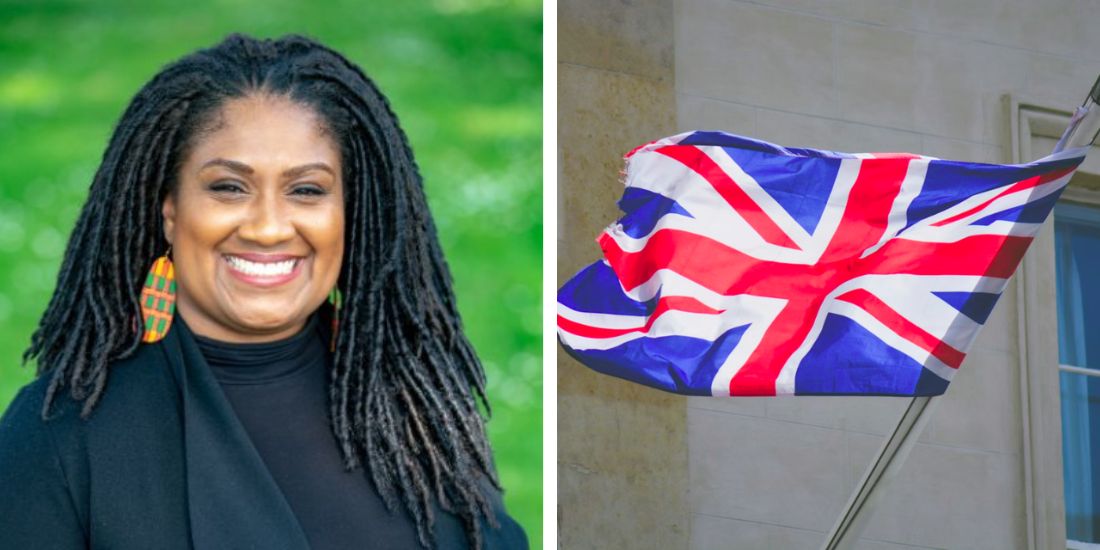Last week, President Trump suggested that a few particularly acerbic critics of his immigration policies should pack up and leave. For that, he was branded a racist.
What’s really going on here?
“The press has become the greatest power within the Western countries, more powerful than the legislature, the executive and the judiciary. One would then like to ask: by what law has it been elected and to whom is it responsible?”
In 1978, the great Russian writer Alexander Solzhenitsyn was invited to give the commencement address at Harvard University.
In his speech, the exiled dissident harshly criticized Western news reporting for endorsing “fashionable trends of thought and ideas” while suppressing “independent-minded people from giving their contribution to public life.”
He added, “The press has become the greatest power within the Western countries, more powerful than the legislature, the executive and the judiciary. One would then like to ask: by what law has it been elected and to whom is it responsible?”
The press reacted furiously, calling him a “conservative radical,” a “fierce dogmatic,” and a “fanatic.” Solzhenitsyn himself chronicled the response in his recently published memoir, Between Two Millstones:
“If you don’t like it here, why don’t you leave?” (This came up in several newspapers, and more than once.) “Why if life in the United States is so deplorable and venal, should he have chosen to live here?.... Mr. Solzhenitsyn, don’t let the doorknob hit you in the rear on the way out…. As you don’t like anything else here, it’s not unkind of us to point out that you don’t have to stay here… Love it or leave it…. Would somebody please send [him] an airline schedule for overseas flights, east-bound.”
Never mind that Solzhenitsyn had been expelled from the Soviet Union and stripped of his citizenship. He failed to bend the knee to the Washington Post – send him back!
Was this treatment xenophobic? Nativist? Much depends, apparently, on whose ox is being gored. The media’s duplicity in this respect proves Solzhenitsyn’s point: the press uses its outsized power to endorse fashionable ideas and to suppress others.
[caption id="attachment_179698" align="aligncenter" width="1920"] Alexander Solzhenitsyn[/caption]
Alexander Solzhenitsyn[/caption]
Trumpism, above all else, is a broadside against media-enforced orthodoxies. The tyranny of fashionable thought threatens the West because it throttles discussion of reasonable solutions.
It has gotten so bad that nations are not even supposed to enforce their immigration laws, because doing so is considered gauche. This social pressure to conform is not simply an annoyance. It is, according to Solzhenitsyn, a “petrified armor around people’s minds.”
“Gradually another America began unfolding before my eyes, one that was small-town and robust, the heartland, the America I had envisioned as I was writing my speech, and to which my speech was addressed.”
Trump was elected by working class voters most harmed by the stupid policies that follow from elitist dogmas. His promise to “build a wall and have Mexico pay for it” was welcome bravado. It showed voters that the speaker did not care a whit about pleasing CNN.
Trump was the guy – not Cruz or Jeb! or Rubio – who was most likely to defy the intrusive forces that were doing so much damage. The jubilant crowds that greet him at his rallies are there to express gratitude for his tenacity in battling these principalities and powers.
Ilhan Omar may think she was entitled to enter this country, engage in sundry schemes involving marriage, taxes, and campaign finance, and then serve in Congress. She certainly does not exude thanks for the country that saved her from life in a refugee camp in Kenya.
President Trump seems to sense how Omar’s ingratitude will play, politically. If the 2020 election is waged over whether Ellis Island was a concentration camp or a worthy source of national pride, it is favorable ground for the president.
As for Solzhenitsyn, he eventually encountered reactions to his speech from outside the corridors of power, along the lines of “we know in our hearts he is right.”
This led him to distinguish between what he called “the arrogant stance of the America of New York and Washington” and what he observed elsewhere:
“Gradually another America began unfolding before my eyes, one that was small-town and robust, the heartland, the America I had envisioned as I was writing my speech, and to which my speech was addressed.”
He expressed “a glimmer of hope” that opposition to the dictatorship of fashionable ideas could spring from those places.
Forty-one years later, Trumpism is the last, best expression of that hope.
Thomas Farnan is a full time practicing lawyer from the heart of Trump-country. He has been featured in American Greatness, Townhall, the Observer, and PJ Media. You can follow him on Twitter.





